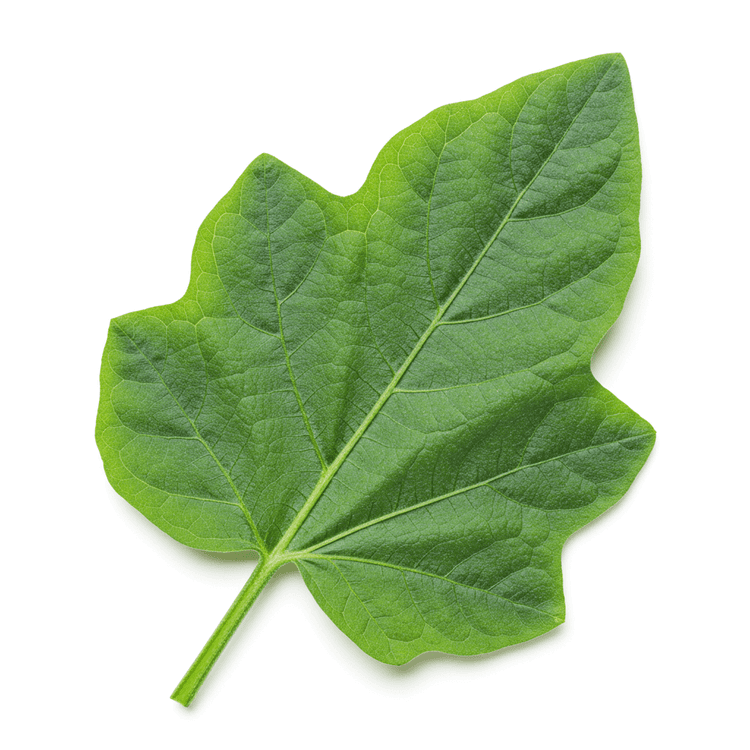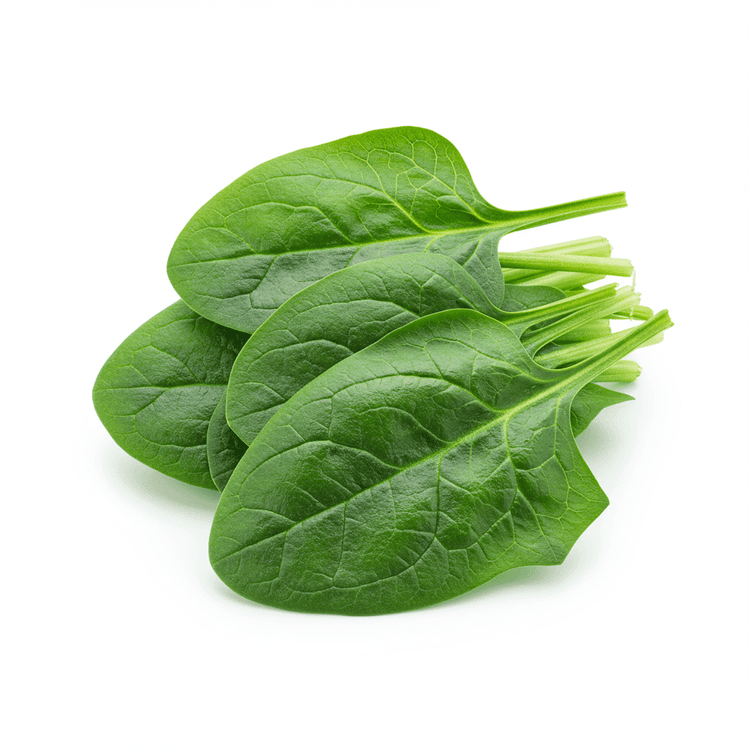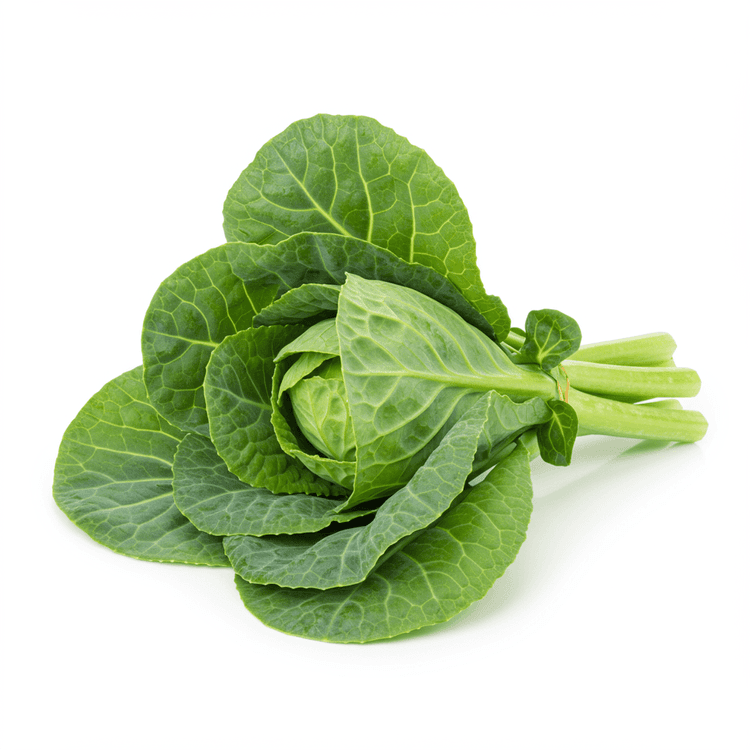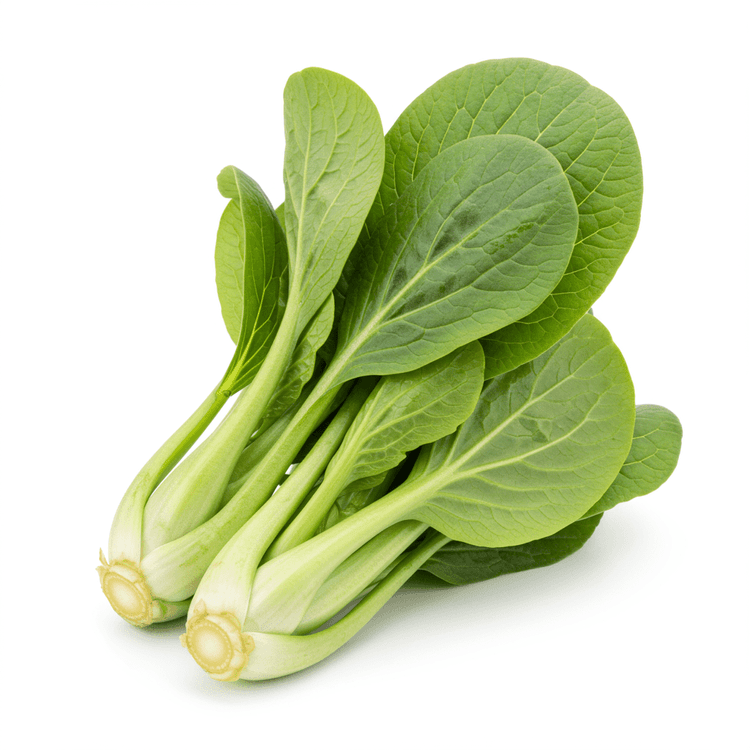
Eggplant Leaf
Eggplant leaves are the foliage of the eggplant plant, characterized by their broad, slightly fuzzy texture and deep green color. While the eggplant fruit is widely used in cooking, the leaves are less commonly consumed due to their slightly bitter taste and the presence of solanine, a natural compound that can be toxic in large quantities. However, in some cultures, young eggplant leaves are carefully prepared and cooked to reduce bitterness and are used as a leafy green in traditional dishes. Their earthy flavor and tender texture, when cooked properly, make them a unique addition to certain recipes.
Common Uses
- Steamed or Boiled as a Side Dish: Young eggplant leaves can be steamed or boiled to reduce bitterness and served as a nutritious side dish, often paired with rice or other grains.
- In Soups and Stews: In some traditional cuisines, eggplant leaves are added to soups and stews for their earthy flavor and tender texture after cooking.
- As a Wrap for Stuffing: Similar to grape leaves, eggplant leaves can be used to wrap fillings such as rice, meat, or vegetables, creating a unique twist on stuffed leaf recipes.
- In Stir-Fries: When finely chopped and cooked thoroughly, eggplant leaves can be incorporated into stir-fries with garlic, onions, and other vegetables for a flavorful dish.
- Herbal Infusions: In certain cultures, eggplant leaves are boiled to create herbal infusions believed to have medicinal properties, though this should be done with caution due to potential toxicity.
Health Benefits
- Eggplant leaves are rich in antioxidants, which can support overall wellness and add a nutrient boost to meals.
- They are commonly used in traditional cooking for their earthy flavor and tender texture, often in soups, stews, or stir-fries.
- These leaves are a good source of dietary fiber, which can aid digestion and promote a feeling of fullness.
- Eggplant leaves contain vitamins like A and C, which are beneficial for maintaining healthy skin and immune function.
- Their mild bitterness can enhance the flavor profile of dishes, adding depth and complexity to recipes.
- They are often included in plant-based diets for their versatility and nutrient density, making them a great addition to vegetarian and vegan meals.
Substitutes
Chefadora AI is here.
Experience smarter, stress-free cooking.
Storage Tips
Eggplant leaves should be stored in the refrigerator to maintain their freshness. Wrap them loosely in a damp paper towel and place them in a perforated plastic bag or a container with ventilation. Use them within 3-5 days for optimal flavor and texture. Avoid freezing, as this can cause the leaves to lose their delicate structure and taste.
Marnirni-apinthi Building, Lot Fourteen,
North Terrace, Adelaide, South Australia, 5000
Australia





